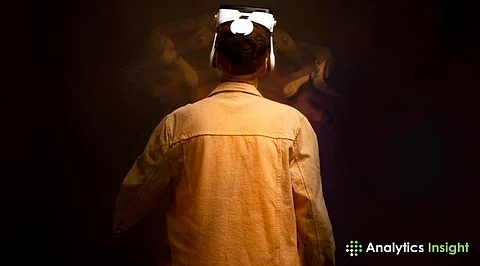

The metaverse, a virtual reality space where users can interact, create, and explore, has been touted as the next frontier of digital innovation. With companies like Disney and Meta (formerly Facebook) investing heavily in its development, the metaverse seemed poised for explosive growth and widespread adoption. However, recent developments, including Disney's abandonment of its metaverse plans and Meta's decision to disable NFT features on Instagram, have cast doubt on the future of the metaverse. In this analysis, we will explore the rise, fall, and reevaluation of the metaverse, examining the factors contributing to its current state and the potential paths forward.
The concept of the metaverse first gained prominence in science fiction literature, where it was depicted as a virtual reality space where users could interact with each other and digital objects in a three-dimensional environment. However, it wasn't until the rise of technology and the internet that the metaverse began to take shape in the real world. Companies like Disney and Meta recognized the potential of the metaverse to revolutionize entertainment, communication, and commerce, and began investing in its development.
Disney's ambitious plans to build its metaverse, spearheaded by veteran executive Mike White, promised to bring the company's vast content library and storytelling prowess into the digital world. With iconic characters like Mickey Mouse, superhero universes like Marvel and Star Wars, and sports channels like ESPN, Disney seemed poised to create an immersive, next-generation experience for fans, reported by Technopedia.
Meanwhile, Meta, with its acquisition of Oculus and the development of virtual reality technologies, positioned itself as a leader in the metaverse space. The company's vision of a connected, immersive digital world resonated with many, sparking excitement and anticipation among users and investors alike.
Despite the initial hype and excitement surrounding the metaverse, recent developments have cast a shadow over its future. Disney's decision to lay off its entire Metaverse division just over a year after its formation was a significant blow to the industry. The restructuring under returning chief executive Bob Chapek signaled a shift in priorities for the company, away from ambitious metaverse projects and towards more traditional areas of focus.
Meta's decision to disable NFT features on Instagram further dampened enthusiasm for the metaverse. NFTs, or non-fungible tokens, are digital assets that represent ownership of unique items in the virtual world. They are seen as integral to the development of the metaverse, providing a means for users to buy, sell, and trade digital goods. Meta's move to disable NFT sharing on Instagram less than a year after its introduction was met with disappointment and skepticism from the community, raising questions about the company's commitment to the metaverse vision.
Despite the setbacks and disillusionment, some believe that the metaverse is far from dead. Vishal Shah, Meta's vice president of Metaverse, acknowledges that the metaverse was in a "hype cycle" and that the hype is now dead. However, he remains optimistic about the future, emphasizing the importance of continued investment and innovation in building the metaverse.
Shah's remarks suggest a shift in focus from hype to substance, from grandiose visions to practical implementation. Building the metaverse is no easy feat, and it will require patience, perseverance, and collaboration from all stakeholders involved. While the road ahead may be challenging, the potential rewards are immense. The metaverse has the power to transform how we interact, communicate, and experience the digital world, and it is up to us to make that vision a reality.
The rise, fall, and reevaluation of the metaverse reflect the complex and dynamic nature of digital innovation. While recent setbacks have raised questions about the viability and future of the metaverse, they have also prompted a reevaluation of priorities and strategies. Companies like Disney and Meta must learn from past mistakes, adapt to changing market conditions, and continue to invest in the development of the metaverse. Only then can we truly unlock its full potential and usher in a new era of digital connectivity and creativity.
Join our WhatsApp Channel to get the latest news, exclusives and videos on WhatsApp
_____________
Disclaimer: Analytics Insight does not provide financial advice or guidance on cryptocurrencies and stocks. Also note that the cryptocurrencies mentioned/listed on the website could potentially be risky, i.e. designed to induce you to invest financial resources that may be lost forever and not be recoverable once investments are made. This article is provided for informational purposes and does not constitute investment advice. You are responsible for conducting your own research (DYOR) before making any investments. Read more about the financial risks involved here.
